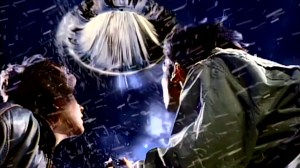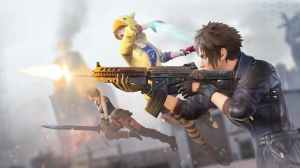
Daredevil is hitting a major milestone this week with its 600th issue. Writer Charles Soule and artist Ron Garney will bring their “Mayor Fisk” storyline to a climax for the anniversary, guaranteeing fireworks for the celebration. Daredevil #600 represents the culmination of almost 55 years of stories. The series has rarely missed a month since its debut in April 1964, where the character was created by Stan Lee and Bill Everett.
Videos by ComicBook.com
That sort of milestone has only been shared by the likes of the Fantastic Four, Spider-Man, Thor, and a handful of others at Marvel Comics. These are the characters who both debuted at the start of the Silver Age and managed to regularly carry a series all of the way into the modern era. However, Daredevil stands out from the rest of this cohort for one very notable reason: His series is the best, overall.
When you look at all 600 issues and compare them to any other series with a similar lifespan, the average quality is obviously better. It’s not even a real fight, like when Daredevil tried to fight The Hulk in Daredevil #163, but this time DD wins. So what makes Daredevil stand out? Is it the nature of the series? The style of the character? Or the creators it attracts? The truth is a mix of all three.

Daredevil Is a Series Designed for Risks
Ever since the 1960s, Daredevil has fallen into the gaps between being a hit series and a failed one. Initially introduced to play on the popularity of Spider-Man, Daredevil did not find similar sales success. It regularly sold well enough to remain part of Marvel Comics’ roster, even during lean times, but it often appeared to do so just barely.
This balance serves a dual purpose. It provides creators with a series where they can expect a long run and one that is not popular enough to warrant as much editorial concern or interference. Looking at Daredevil in the long run, it’s easy to break down the series into runs because almost every writer has brought a new spin to the character for a substantial period of time. Even prior to Frank Miller‘s iconic turn on Daredevil, Marvel stalwarts like Stan Lee, Gerry Conway, and Marv Wolfman also spent at least 20 issues going in different directions. Conway pulled the series into a science fiction story and added lots of spy elements, then Wolfman returned it to melodrama in Hell’s Kitchen.
There is simply no better laboratory at Marvel Comics than Daredevil. Creator reinvention of the series has gone from being a happy coincidence of its place in the sales charts to a tradition. There is now an expectation that each new creator will radically alter the book. While some fans may not love the recent happy-go-lucky twist added by Mark Waid or the current gritty, legal drama shift from Soule, there seems to be an understanding that this is the nature of the series. If you don’t like Daredevil now, you may very well love whatever comes next. Nobody knows what it might be.

Daredevil Is a Character of Contradictions
It’s difficult to reinvent a character with an obvious hook or thesis though. Captain America might go through phases or move between genres, but his core values and beliefs don’t provide much wiggle room. That isn’t necessarily a bad thing, but it does offer less flexibility for each new creator. Daredevil on the other hand is packed with a variety of possibilities and a seemingly endless array of conflicts.
Matt Murdock is someone both dedicated to the rule of law and a dangerous vigilante. He is a consistent force for good and someone overwhelmed by guilt. He is a gifted intellect and acrobat and unsure of his own abilities. He is a dedicated friend and companion and someone whose life is haunted by tragedy. He is, in many ways, the most human of the banner superheroes at Marvel Comics. The fashion in which he perceives himself and how the world sees him are often at odds, and both true in their own way. There is no one single correct or best take on what makes Daredevil, because it’s the contradictions within the character that shape his greatest battles and stories.
No one can claim that Daredevil has already touched upon all of the key themes and conflicts within its hero. In spite of some references in the early Silver Age, Daredevil’s disability has been largely ignored in most runs, except when convenient. He remains one of the most prominent disabled superheroes though, offering a largely unused lens for a future creator to expand upon. Many of the themes previously addressed in the series have aged in a manner that calls for a new take as well. Daredevil’s relationship with the Catholic Church and women being just two notable examples. There is simply too much to Daredevil for the character to stagnate. His very nature demands creation, reinvention, and forward momentum.

Daredevil Is Where the Best Creators Break Out
It’s no surprise that such a character would attract talent in comics. Daredevil offers a great foundation of mythos and setting combined with less stress and demands than Marvel’s most popular titles. It is the place to go for creators to make a mark. While many greats like Wally Wood, Wolfman, and Conway handled Daredevil during its earliest years, Frank Miller was the first breakout success from the title. He began his work as a penciler, then pushed to get writer Roger McKenzie fired and take over all storytelling duties. From there it quickly became clear that, as both writer and artist, Miller was one of the greats.
Daredevil has offered an early defining point for the careers of many other big talents in superhero comics. Brian Michael Bendis, Ann Nocenti, David Mazzucchelli, Chris Samnee, and others were all defined by their work on the title early in their careers. Other greats like Ed Brubaker, John Romita Jr., Mark Waid, and more saw it redefine what they could do or return their work to the spotlight. Looking across the years at the hands that have shaped Daredevil is to witness the greatest collection of talent to work on a Marvel comics series for an extended period of time. It simply is the series to declare your greatness or remind readers of it.
That tradition is a valuable one, and one that will hopefully last well beyond the pages of Daredevil #600. This anniversary may be a celebration and mark the end of one story, but that’s no cause to slow down after five decades of success. As long as Daredevil remains a title sought out by creators to experiment with their craft and redefine its hero, then it ought to stay the best Marvel Comics series ever.








